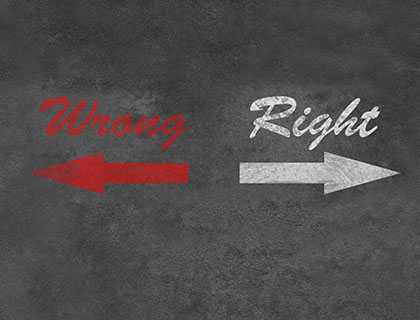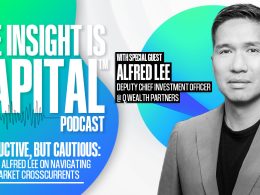An Estate Planning Checklist for Advisors
by Commonwealth Financial Network
 A plan to distribute wealth, just like a plan to accumulate it, must be tailored around your client's unique situation, goals, and needs. As the trusted advisor, you're well positioned to oversee all elements of your client's plan to help ensure the distribution of assets according to his or her wishes—and at the lowest possible cost. That involves a sometimes overwhelming amount of information and documents to keep track of, so what follows is an estate planning checklist to guide your conversations with clients and to help ensure that you've covered all the details in their plans.
A plan to distribute wealth, just like a plan to accumulate it, must be tailored around your client's unique situation, goals, and needs. As the trusted advisor, you're well positioned to oversee all elements of your client's plan to help ensure the distribution of assets according to his or her wishes—and at the lowest possible cost. That involves a sometimes overwhelming amount of information and documents to keep track of, so what follows is an estate planning checklist to guide your conversations with clients and to help ensure that you've covered all the details in their plans.
1) How and when does your client want to distribute his or her wealth to heirs and the community? Clients may have an interest in a particular charity or in creating a legacy with a foundation in their name. Some may want to leave everything to their spouse without considering how to minimize taxes. It’s important to understand that some assets are better
than others when it comes to gifting, and that can depend on your client’s age. Review the following elements to ensure that your client's plan matches his or her wishes:
- Gifts during your client’s life
- Bequests at death only
- A combination of current gifting and bequests
2) Have the necessary documents been reviewed by your client's attorney? Do all documents that have tax implications meet current goals and tax laws? Carefully discuss your client's goals and how his or her documents should be changed to achieve them. Be sure to review the following:
- Advanced directives (financial and health care powers)
- Will
- Trusts
- Buy-sell agreements or other business succession plans
- Guardian designations
- Fiduciary appointments in these documents
3) Who will manage your client's assets and health care should he or she become disabled? This can be a more delicate conversation, but it is necessary nonetheless. With the risk of the unexpected or an aging client’s declining health or mental capacity, it’s important for the client to designate someone to manage his or her affairs should he or she become incapacitated. If a client fails to do so and is no longer able to make financial decisions, loved ones would have to seek court approval for any choice made on the client’s behalf. If your client has designated a power of attorney (POA), it’s important to conduct a checkup every so often as your client’s life and relationships change over the years. Discuss plans for possible long-term care by reviewing the following documents:
- Durable POA
- Health care proxy, medical directive, and living will
- Revocable trust
4) Has your client provided a safety net for family and friends? Help ensure that your client's wealth will be distributed to loved ones as he or she sees fit, from a life insurance policy to a gifting program. Be sure to carefully examine the following:
- Current and projected cash flow analysis
- Survivor and dependent needs analysis
- Retirement of debt at death
- Current life insurance coverage
- The effects of a gifting program on income
5) Does the ownership of your client's property reflect his or her estate plan? To ensure that the plan matches, discuss the following questions:
- Has your client ever lived in a community property state?
- Has jointly owned property been reviewed?
- Which assets will be available for estate tax planning, if necessary?
- Is a revocable trust funded?
6) Do the beneficiary designations of your client's property and retirement plans reflect his or her estate plan? To ensure that your client's wishes will be carried out, review the following:
7) Will your client's estate be distributed at the lowest possible cost? To prevent unnecessary income taxes for heirs, be sure to evaluate the following:
- Federal estate taxes
- State estate and inheritance taxes
- Generation-skipping transfer tax (GSTT)
8) Has your client considered his or her digital assets? A digital asset is a record, document, or communication maintained on any electronic device and includes social media, electronic statements, and electronically stored pictures, music, and books. Digital privacy laws were virtually nonexistent until the introduction of the Uniform Fiduciary Access to Digital Assets Act in 2014 and the Revised Uniform Fiduciary Access to Digital Assets Act (RUFADAA) in 2015. Your clients are now able to legally give consent about who can access their digital assets after their passing, as well as what they would like to happen to their social media accounts. Be sure to discuss the following:
- If your client lives in a state that has adopted RUFADAA
- Who will have access to your client’s digital assets
- How your client will give consent concerning access
- The policies of various social media accounts following a user’s death
- If the accounts will be deleted after the client’s death
9) Will your client's life insurance be received estate tax free? There is still the risk that the proceeds from a life insurance policy could be considered part of your client’s taxable estate. If your client wants to avoid federal taxes on the life insurance policy, he or she will need to transfer ownership. Consider the following options and actions:
- Transference of ownership to an existing irrevocable life insurance trust
- Addition of term insurance to cover possible estate taxes during the three-year period
- Insurability
- Select a trustee and execute a life insurance trust
- Make premium gifts to the trust
- Have the trustee pay life insurance premiums
10) If your client has a taxable estate, has the client made the best use of his or her federal or state estate tax exemptions? Consider:
- Making an outright gift or bequest outside of a bypass trust
- Including tax planning provisions in his or her revocable trust
- Structuring ownership of assets to maximize the estate tax planning structure in the plan
11) Is your client taking advantage of the annual gift tax exclusion and other tax exceptions? In 2019, a client can give up to $15,000 to someone in a year and avoid the gift tax. That annual amount is per person, per recipient, so your client can give $15,000 to multiple people and married couples can give up $30,000. Is your client aware of this? Evaluate the following aspects of his or her estate plan:
- Annual gift tax exclusion
- Qualified transfers for educational and medical expenses
- Lifetime gift tax exclusion
- Valuation discounts for gifts over $1 million
- GSTT election to dynasty trust
- Gifts to charities
12) Does your client have asset protection concerns? Evaluate these concerns by reviewing the following:
- Umbrella liability policy
- Maximizing qualified plans
- Statutory protection of insurance, annuities, and homestead laws
- Business entity
- Tenancy in entirety
- Asset protection trusts
13) Is your client the trustee or beneficiary of an existing trust? If this is the case, be sure to review and consider the following:
- Trustee authority provisions
- Investment policy statement
- Insurance due diligence
14) Does your client have any issues that require special attention? Discuss whether any of the following exists:
- Special needs children
- Children of a prior marriage
- Dependent parents
- Unmarried couple
- Pets
- Potential inheritance
15) Do your client's heirs understand his or her estate plan? To ensure that all parties full grasp the implications of the plan, consider:
- Holding a family meeting to discuss the plan
- Drafting letters of instructions
- Determining a safe location for documents and records
As your clients accumulate wealth over the years, an estate plan will become a necessary part of their financial planning process, whether they have interest in creating a legacy or leaving money to their heirs. With the various documents, decisions, and factors involved, keeping track of it can be complicated. The estate planning checklist provided here will simplify the process, allowing you to better help your clients stay organized and on track with the goals and management of their financial assets.
Editor's Note: This post was originally published in August 2014, but we've updated it to bring you more relevant and timely information.
Is there anything else you would add to this estate planning checklist, or other tools you use in this process? Share your thoughts below!
Commonwealth Financial Network is the nation’s largest privately held independent broker/dealer-RIA. This post originally appeared on Commonwealth Independent Advisor, the firm’s corporate blog.
Copyright © Commonwealth Financial Network

















